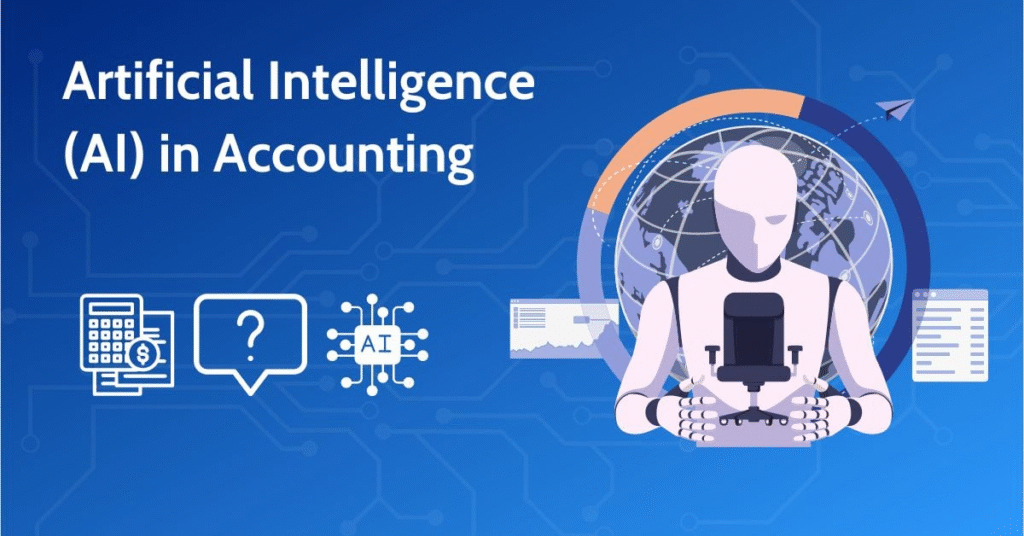Evolving in a financial landscape, accounting firms are facing increasing demands for efficiency, accuracy, and real-time insights. Traditional accounting practices, though reliable, are often labor-intensive, prone to human error, and time-consuming. Enter AI in accounting and finance, a transformative technology that is revolutionizing the way firms operate. By integrating artificial intelligence into daily workflows, accounting firms can not only streamline operations but also unlock unprecedented growth opportunities.
The Rise of AI in Accounting and Finance
Over the past few years, AI in accounting and finance has moved from a futuristic concept to an essential business tool. Artificial intelligence algorithms can now process vast amounts of financial data, detect anomalies, forecast trends, and even provide strategic insights. This shift has allowed accounting firms to transition from mere number-crunchers to strategic business advisors.
Firms that adopt AI early gain a competitive advantage, improving both client satisfaction and operational efficiency. The ability to analyze data quickly and accurately allows accountants to focus on higher-value tasks, such as advisory services, risk management, and strategic planning.
Key Benefits of Adopting AI in Accounting Firms
1. Automation of Repetitive Tasks
One of the most significant advantages of AI in accounting and finance is automation. Routine tasks such as data entry, invoice processing, and reconciliation can be fully automated using AI-powered tools. This not only reduces human error but also frees up accountants to engage in more strategic activities.
For example, AI systems can automatically categorize transactions, flag discrepancies, and even generate reports without human intervention. This automation leads to faster processing times and allows firms to take on more clients without increasing staff workload.
2. Enhanced Accuracy and Compliance
Accounting errors can be costly, both financially and reputationally. AI in accounting and finance ensures higher accuracy by continuously monitoring transactions and detecting anomalies that might go unnoticed by human eyes.
Moreover, AI systems can stay up-to-date with constantly changing regulatory standards. This helps firms maintain compliance effortlessly, reducing the risk of audits or penalties. By leveraging AI, firms can provide clients with accurate financial statements while minimizing potential risks.
3. Data-Driven Insights
Beyond automation, AI in accounting and finance offers advanced analytics capabilities. By analyzing historical data, AI tools can identify patterns, trends, and insights that inform strategic decisions.
For instance, AI can forecast cash flows, predict budget shortfalls, or identify areas for cost optimization. These insights empower accountants to advise clients more effectively and position their firms as strategic partners rather than just service providers.
4. Improved Client Experience
Clients today demand faster, more accurate, and transparent accounting services. By integrating AI into operations, accounting firms can meet these expectations with ease.
AI-powered platforms allow for real-time reporting, instant access to financial data, and predictive insights, enhancing the overall client experience. Firms can provide personalized solutions, anticipate client needs, and deliver higher-value advisory services, fostering stronger long-term relationships.
5. Scalability and Growth
Adopting AI in accounting and finance enables firms to scale efficiently. Automation reduces manual workloads, allowing firms to manage more clients without significantly increasing staffing costs.
Furthermore, AI insights can uncover new service opportunities, such as advisory on financial planning, risk management, or investment strategies. By embracing AI, firms can expand their service offerings, enter new markets, and drive sustainable growth.
Strategies for Successful AI Adoption in Accounting Firms
Implementing AI requires more than just purchasing software it demands a thoughtful approach and clear strategy. Here are some proven strategies to successfully integrate AI into your accounting firm:
1. Assess Current Processes
Before adopting AI, it’s crucial to understand your firm’s current workflows and identify areas where AI can add the most value. Conduct a thorough audit of your processes to pinpoint repetitive tasks, data bottlenecks, and compliance challenges.
This evaluation will guide you in selecting the right AI tools and ensure a smoother transition.
2. Choose the Right AI Tools
The market offers a wide range of AI-powered accounting solutions, each with unique features. Some focus on automation, while others specialize in analytics or compliance.
Selecting the right tools that align with your firm’s objectives is critical. Consider factors such as integration capabilities, scalability, security, and ease of use. The goal is to complement your existing workflows rather than disrupt them.
3. Train Your Team
AI adoption is not just a technological change, it’s a cultural one. Employees must understand how AI works, its benefits, and how it integrates with their daily tasks.
Invest in training programs to upskill your team. Encourage a mindset of collaboration between humans and AI, where technology handles repetitive work while humans focus on critical thinking and strategic decision-making.
4. Start Small, Scale Gradually
Rather than attempting a firm-wide AI overhaul, start with pilot projects. Implement AI in one department or process, monitor its impact, and gather feedback.
This incremental approach allows your team to adapt gradually, minimizes risks, and provides insights for optimizing AI deployment across the firm.
5. Monitor and Optimize
AI systems learn and improve over time, but continuous monitoring is essential. Track performance metrics such as accuracy, efficiency, and client satisfaction to ensure AI tools are delivering value.
Regularly update AI algorithms and workflows to align with evolving business needs, regulatory changes, and client expectations. Optimization ensures that your firm stays ahead in a competitive landscape.
Overcoming Challenges in AI Adoption
While the benefits are clear, adopting AI in accounting firms is not without challenges. Understanding these hurdles helps firms prepare and implement AI more effectively:
- Data Privacy and Security: Handling sensitive financial information requires strict data security protocols. Ensure that AI solutions comply with relevant data protection regulations.
- Initial Costs: AI implementation can require significant upfront investment in software, training, and infrastructure. However, the long-term gains in efficiency and scalability often outweigh these initial costs.
- Change Management: Resistance to change is common in any organization. Clear communication, training, and leadership support are crucial for successful adoption.
- Integration with Existing Systems: Legacy accounting systems may not always integrate seamlessly with AI tools. Carefully evaluate compatibility and plan for phased integration if necessary.
The Future of Accounting Firms with AI
The future of accounting is undeniably intertwined with AI. Firms that embrace AI in accounting and finance will thrive in an environment that demands speed, accuracy, and strategic insights.
AI will continue to advance, enabling predictive analytics, real-time financial monitoring, and smarter decision-making. Accounting professionals will increasingly focus on advisory roles, using AI-generated insights to guide clients through complex financial landscapes.
Firms that adopt AI early position themselves as innovators, offering a competitive edge and setting new industry standards. The combination of human expertise and AI intelligence creates a powerful synergy that drives growth, enhances client trust, and future-proofs the business.
Conclusion
Adopting AI in accounting firms is no longer a luxury; it’s a growth strategy essential for staying competitive. From automating repetitive tasks to providing deep data insights, AI in accounting and finance transforms traditional practices into dynamic, value-driven operations.
By carefully assessing workflows, choosing the right tools, training staff, and optimizing processes, accounting firms can unlock the full potential of AI. The result is a scalable, efficient, and future-ready firm capable of delivering superior client experiences and achieving sustainable growth.
AI Accountant delivers automated accounting and bookkeeping services, including transaction tagging, bank reconciliation, report creation, and integration with Tally and Zoho Books. Taking over manual tasks enables businesses to dedicate more time to compliance, data-driven insights, and overall growth.






